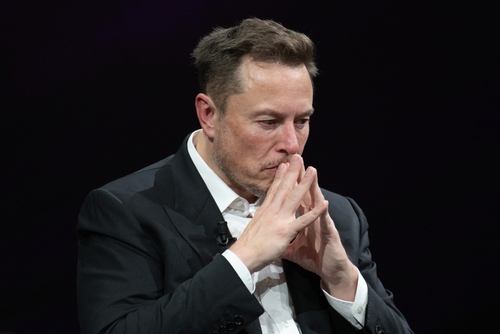David Hogg, the newly elected vice chairman of the DNC, calls for Elon Musk’s replacement with Pete Buttigieg, a bold move that stirs debate on political accountability and leadership. Hogg advocates for change by opposing Musk’s initiatives.
David Hogg’s Political Position
David Hogg, recently appointed vice chairman of the Democratic National Committee (DNC), has taken a strong stand against Elon Musk’s attempts to overhaul political accountability in Washington, D.C. Hogg, recognized as one of the most compelling voices of his generation, contrasts sharply with Musk in terms of managing taxpayer funds.
GUN CONTROL ACTIVIST and PARKLAND SHOOTING SURVIVOR David Hogg, now vice chairman of the DNC, slammed Elon Musk for his push to clean up Washington and ensure taxpayer accountability.
Hogg demanded Musk be replaced by former Transportation Secretary Pete Buttigieg. pic.twitter.com/3oUzOIM1Dz
— Bipul Das (@BipulTweets) February 8, 2025
Hogg emphasizes a shift in leadership by calling for Musk’s replacement with Pete Buttigieg, believing Buttigieg’s governance approach would better serve the public. Buttigieg, known as “Mayor Pete,” served as mayor of South Bend, Indiana, and is considering a run for the Michigan Senate seat following the retirement of Sen. Gary Peters.
Leadership and Fiscal Responsibility
Debate intensifies over the fiscal responsibility and leadership effectiveness contrasts between Musk and Buttigieg. Hogg’s critique of Musk points to alleged mismanagement of taxpayer funds, suggesting a need to transform how such matters are handled. Meanwhile, Buttigieg’s time as mayor exemplifies his practical approach to governance, which Hogg believes is apt for enhancing political accountability.
David Hogg has big balls now to speak up about Elon Musk to be fired and showing support for a hack loser like Pete Buttigieg to replace him over Elon Musk. pic.twitter.com/Z0IvUrlgfQ
— 🇺🇸 Edward 🇺🇸 (@tmr_73) February 8, 2025
The broader national dialogue resonates with ideological divides, as shown in Scott Jennings’ comments: “Simply put, I’m more worried about the country’s future than any problems I’ve had with Trump in the past.” Many view Buttigieg as capable of providing much-needed organization and direction.
This call for change isn’t just about Buttigieg versus Musk. It’s about redefining leadership’s role in the modern political landscape, where accountability reigns supreme.
Potential Senate Race Implications
Pete Buttigieg’s possible candidacy for Michigan’s Senate seat adds another layer to this unfolding narrative. The decision could expand his influence and make his leadership style more prominent in the national political arena. His candidacy would occur amidst renewed political discourse and competition due to upcoming elections.
As Jon Husted’s statement in another political context highlights: “My time here at the Statehouse has been a true joy, but representing Ohio in the U.S. Senate is an amazing opportunity.” This theme of seeking more significant influence resonates with Buttigieg’s potential move and underscores the significance of experienced leadership amid this call for change.
This push for political transformation is ongoing. Hogg’s advocacy reflects a crucial dialogue on what citizens desire in their leaders today, revealing underlying tensions about leadership styles and fiscal accountability.
Conclusion
David Hogg’s challenge to Elon Musk’s reform efforts underscores a pivotal debate about fiscal responsibility and political leadership. By advocating for Pete Buttigieg’s leadership, Hogg signals a desire for a government more attuned to practical leadership principles and responsible governance. These discussions reshape the national political landscape and could influence voter perspectives in future elections.
As this dialogue evolves, reflecting on leadership qualities remains paramount to understanding and engaging in this transformative political moment.
Sources:
https://www.yahoo.com/news/column-sure-harris-isnt-ideal-110052684.html
https://www.yahoo.com/news/mad-scramble-jd-vances-seat-164604331.html

